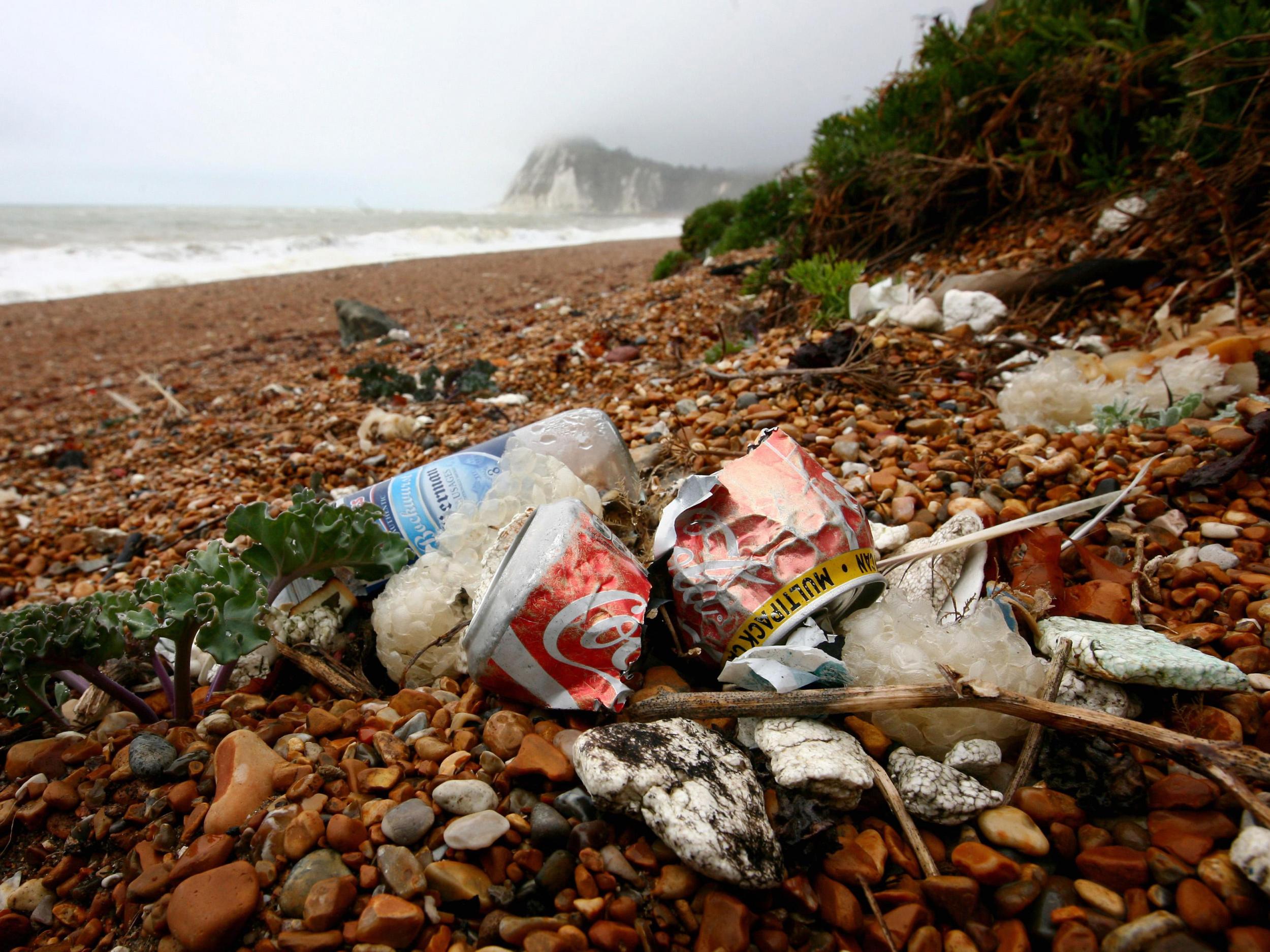Litter on British beaches rises 10 per cent as charities urge tax for 'on the go' plastic packaging
Volunteers find 138 pieces of food and drink waste for every 100 metres of shoreline during Marine Conservation Society clean-up operation

Your support helps us to tell the story
From reproductive rights to climate change to Big Tech, The Independent is on the ground when the story is developing. Whether it's investigating the financials of Elon Musk's pro-Trump PAC or producing our latest documentary, 'The A Word', which shines a light on the American women fighting for reproductive rights, we know how important it is to parse out the facts from the messaging.
At such a critical moment in US history, we need reporters on the ground. Your donation allows us to keep sending journalists to speak to both sides of the story.
The Independent is trusted by Americans across the entire political spectrum. And unlike many other quality news outlets, we choose not to lock Americans out of our reporting and analysis with paywalls. We believe quality journalism should be available to everyone, paid for by those who can afford it.
Your support makes all the difference.Litter on beaches, targeted in a national clean-up, rose by 10 per cent this year, with a fifth of the rubbish made up of “on-the-go” food and drinks items such as cups, foil wrappers and bottles.
On average, 138 pieces of food and drink waste were found for every 100 metres of beach, with items picked up in the Marine Conservation Society’s Great British Beach Clean ranging from plastic cutlery and straws to sandwich packaging and lolly sticks.
On-the-go items made up 20 per cent of all litter found in this year’s annual survey and clean-up, and 63 per cent of the beach rubbish dropped by the public, the Marine Conservation Society (MCS) said.
The charity is calling for a levy on single-use plastic items handed over free when people buy food and drink to eat while out and about, such as straws, cups, lids, stirrers and cutlery, to help stop the rising tide of plastic choking the oceans.
The call comes amid rising concern over plastic waste in the oceans, most recently highlighted by the BBC’s Blue Planet 2 documentary series, which has prompted the Government to pledge to look at taxes or charges for single-use plastics.
Lizzie Prior, MCS beach-and-river clean project officer, said: “The 5p single-use carrier bag charge has made a massive difference to the number of plastic bags entering our seas.
“If a levy was placed on single-use plastic such as straws, stirrers, cutlery, cups and cup lids, we’re confident that we’d find fewer of these items on our beaches.”
MCS chief executive Sandy Luk said: “Our beach clean evidence shows a shocking rise in the amount of litter this year. Our oceans are choking in plastic.
“We urgently need a levy on single-use plastic as a first step.”
Overall, the amount of litter picked up in the survey rose 10 per cent on 2016’s figures, with an average of 718 bits of rubbish found on every 100 metres of beach, as 6,944 volunteers scoured 399 stretches of UK coastline for this year’s event.
There has been a 27 per cent increase in plastic or polystyrene items since 2008, with small pieces up 11 per cent on 2016 and 38 per cent in the decade, the MCS said.
In better news, average numbers of plastic drinks bottles, plastic cups, paper cups and lids are down on last year.
And there has been a 28 per cent drop in bags found on beaches since 2011 when the plastic bag charge was first brought in, in Wales.
But the Great British Beach Clean has also revealed a 94 per cent rise in wet wipes found on UK beaches in a single year.
MCS urged retailers to better label products consumers think can be flushed down the toilet, and for manufacturers to remove plastic from their “flushable” products.
PA
Join our commenting forum
Join thought-provoking conversations, follow other Independent readers and see their replies
Comments